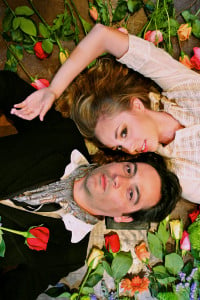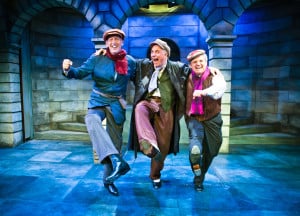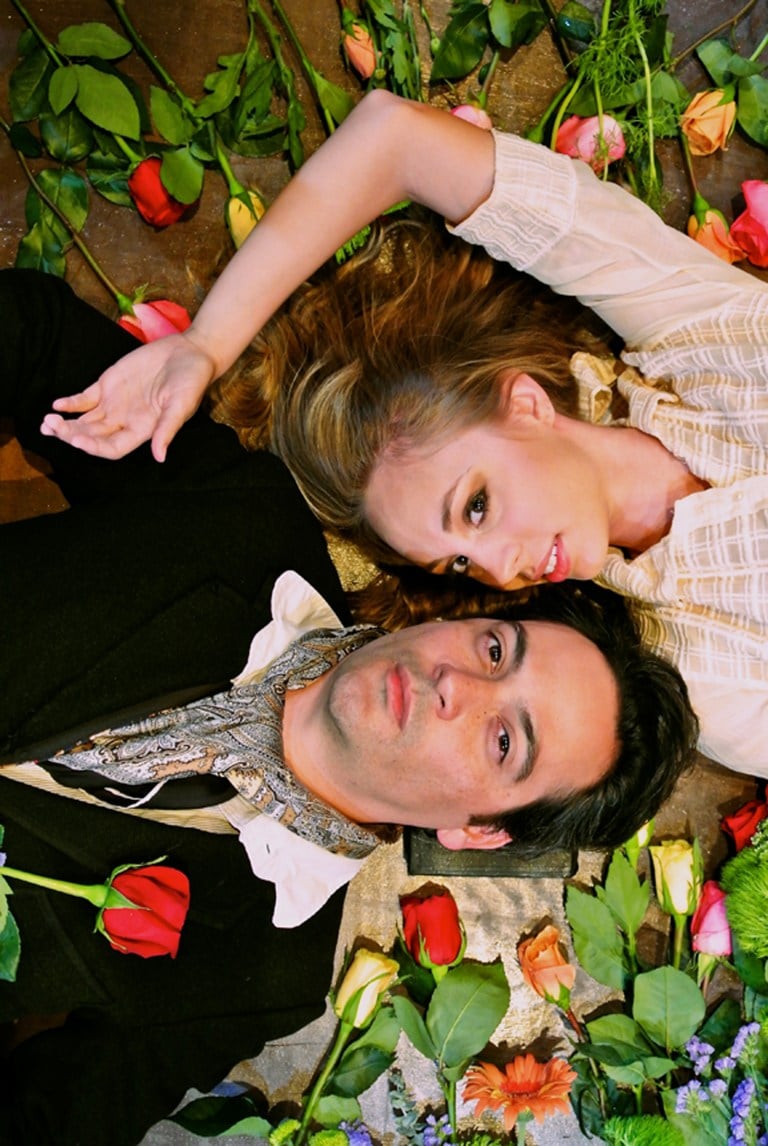
SF Playhouse, a small theater company that has been consistently producing some of the best productions in the Bay Area, does it again with director Bill English’s reinterpretation of the classic Broadway musical “My Fair Lady.” English’s version is stripped down: There is no pit orchestra, multiple lavish sets or large ensemble dances. Instead, there are efficient sets, two pianos and 12 actors, each often playing multiple supporting characters. But what “Lady” lacks in extravagance it makes up for with great originality, entirely reinventing most of the musical numbers.
“My Fair Lady” is the story of a poor Cockney flower girl, Eliza Doolittle (Monique Hafen), who learns to speak proper English from phonetician and man-child Henry Higgins (Johnny Moreno), thus securing her upward mobility and trapping her in the throes of middle-class morality. Eliza has always been a brash young woman, but English’s production takes her characterization one step further: It puts her in pants. In English’s version, the song “Wouldn’t It Be Loverly” becomes Eliza’s solo melancholic lament, sung sadly and quietly while fending off lecherous men with a knife.
Johnny Moreno looks like a cross between Robert Downey Jr. and Jeffrey Dean Morgan, and English has him play Higgins with virility and sexuality, a bold choice for Higgins, who often comes off as asexual in the original work. His relationship with Eliza, often played as somewhat ambiguous, is teeming with sexual tension here. He also finds himself the seeming object of affection of his colleague and friend, Colonel Pickering (Richard Frederick), who in this version is a not-quite-upstanding example of a perfect gentleman–more of a polite, closeted suitor for Higgins. It seems a radical interpretation of the Higgins/Pickering partnership, but the script has a wealth of dialogue that could easily be interpreted as innuendo given our modern sensibilities.
Perhaps the biggest surprise is how likable Alfred P. Doolittle (Charles Dean) is. Eliza’s unmarried father, he is always after her money for drink and is often characterized as a simple, drunken lout. But Dean oozes charm, and as he winks at the audience to get us in on the jokes, you can’t help but like him. When he finally gets forced into marrying his mistress, the number “I’m Getting Married in the Morning,” usually a fairly jovial lament, becomes a dirge, with Doolittle’s friends hoisting him up into the air as if they were carrying a coffin.

As with any radical reinterpretation, not everything works. Instead of being surrounded by household staff, Higgins is surrounded by graduate students in white lab coats, an absurd costume choice, though the interpretation is otherwise valid. English’s decision to fill “Ascot Gavotte” with sexual innuendo to explain why the upper-class spectators “have never been so keyed up” deprives the show of what should have been one of its biggest laughs. And although the British accents of the cast are usually key to a production’s success, as a play about accents, here I’m almost inclined to argue that they could have been Americanized and simplified. It’s not that the dialects are bad–they are good enough to be unobtrusive–but they interfere with the actors’ vocal work, causing them to tighten their voices and inhibiting expression.
But these are minor flaws in what is otherwise an entertaining and unique production of this classic. English’s rendition offers something so entirely new that any failures to live up to pre-existing standards for productions of “My Fair Lady” can be easily overlooked. The SF Playhouse production of “My Fair Lady” is easily the single must-see play of the summer in the Bay Area, with something to offer both old and new fans of the musical.
